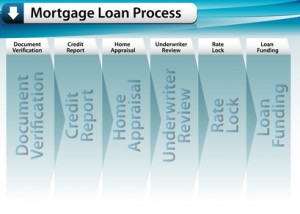If you’re presently in a house hunt, or even just dabbling with the idea of buying a home, you’ve probably done some research and run across multiple articles regarding the current Mortgage Process … and its challenges …
You’ve probably also heard that you’ll be asked to submit plenty of documentation regarding your finances (savings, credit/debt), employment, down payment ability, and more to meet lending requirements. And that the home your hoping to buy will need to pass muster (via an Appraisal) with your Lender as well.
All that is true. And if the property you’re hoping to buy is a Condominium, the level of scrutiny and amount of documentation required grows even more.
Why is that?
There are many outside influences that are woven into a Condominium transaction and its financing. Because of that, there are a few extra steps that must be taken by Buyer(s), Seller(s), and professionals involved with these transactions.
It’s important to establish if the property being transacted is legally determined a Condominium. That determination is arrived at in a number of ways.
The first entails examination of the property’s PIN –or Permanent Index Number. A PIN is a numerical “code” for the legal description of a piece of land as it has been defined for the purposes of real estate taxation. The code points to the parcel’s location on tax maps. PINs for Condominium units OFTEN, but not always, appear differently from other properties, as they are identified by an additional suffix, or set of numbers; other than 0000 at the end.
The second method involves the Legal Description for the property. If the word “Unit” is used within the Legal Description, the property is most likely a Condominium. If the Legal Description mentions “PUD” (Planned Unit Development) within it, the property is typically a Townhome.
The Association aligned with the Condominium Project will need to supply information and documentation for the Mortgage Lender. A complete copy of the recorded Condominium Declarations and Bylaws … along with any amendments … must be submitted to the Lender for their viewing. The Association’s most recent budget must be submitted too.
- The number of 30-Day delinquencies within the Association (Ratio to total number of Units)
- The number of Owner-occupied VS Investor-owned Units
- Pending Special Assessments
- Possible litigation, mediation, arbitration, or disputes involving the HOA (Present & Pending)
- What, if any, Reserve Funds exist
- If common elements and/or facilities are complete
- If the Project plans additional phases or add-ons
- If the Condominium Project maintains adequate Insurance Coverage
It’s important for Mortgage Lenders to perform this close scrutiny of properties, as not all Condominiums (or the Projects they lie within) are eligible for all types of financing. Borrowers must remember it’s ultimately for their protection that these questions are asked and documentation is requested.
Looking to Buy a Condominium? What You Need to Know … There are some extra steps that must be considered and taken when purchasing a Condominium property. Your interests will be best served by working with experienced Mortgage and Real Estate professionals from start to finish.

